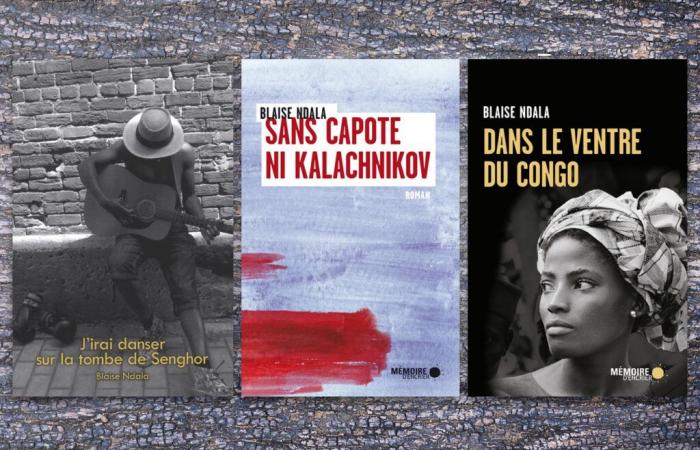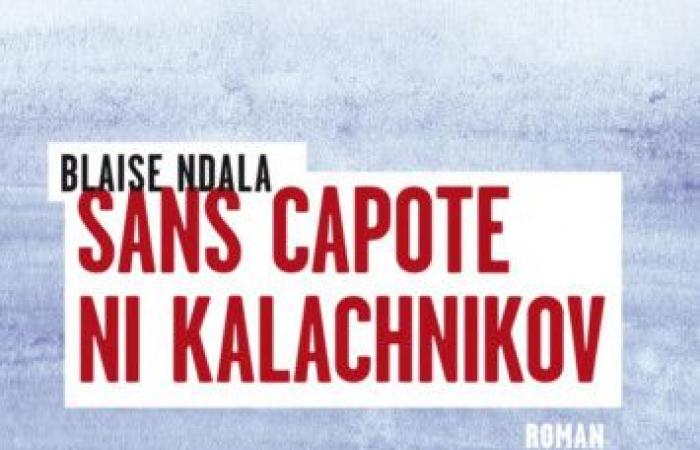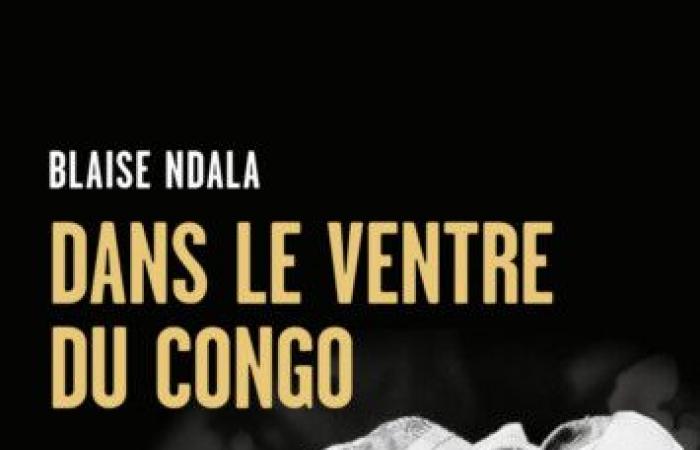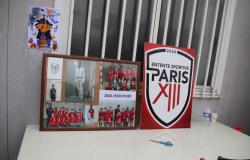CHRONICLE – Blaise Ndala is probably the most widely read Franco-Ontarian author worldwide. This is what happens when you have a literary agent in Paris and you publish with Éditions du Seuil, one of the largest French publishing houses. This reputation is built on a small, but solid, corpus.
Blaise Ndala is originally from the Congo and studied law in Belgium before moving to Ottawa to work as a lawyer in the federal public service.
I will go dancing on Senghor's grave
He published his first novel, I will go dancing on Senghor's grave, in 2014 at Éditions L'Interligne in Ottawa. The work enjoyed immediate critical success and won the Ottawa Book Prize, fiction category, in 2015 in addition to being translated… into Russian.
The story takes place in 1974 in Congo, then called Zaire. The stars of the novel are the Congolese rumba which then sweeps the world and the famous fight of the century between Mohamed Ali and George Foreman.
The title is also attributed, in the book, to Congolese President Joseph-Désiré Mobutu, who governs the largest country in Africa and who is jealous of the President of Senegal, Léopold Sédar Senghor.
Senghor is a recognized writer and the first African to sit at the French Academy. The French-speaking world only has it for itself, which fuels Mobutu's resentment. The latter then imagines that by spending millions of American dollars to hold the fight of the century in Kinshasa, he would upgrade Senghor's international reputation.
The protagonist of the novel is Modero, a young musician from northern Congo who has acquired a good reputation in his part of the country and who decides to go to Kin la belle to try his luck with the big rumba groups.
He discovers a capital where scam is king and where integration into the musical world is not as obvious as he hoped. Thanks to a few contacts, Modero will manage to get closer to the musicians he adores and, above all, to obtain a ticket for the famous fight that has Kinshasa and the whole world in excitement.
The novel is in fact a description of Africa after decolonization. Blaise Ndala shows us daily life in Kinshasa, its music, its shenanigans and its magic.
• • •
Sans capote ni kalachnikov
With his second novel, Sans capote ni kalachnikov, published by Mémoire d'encrier in 2017, Ndala continues his meteoric rise in the French-speaking literary world. Winner of the Combat des livres de - in 2019, the novel will be translated in 2024 under the title The War You Don’t Hate.
The plot touches on two areas: internal wars in certain African countries and the exploitation of these tragedies by the right-thinking in the humanitarian sector.
We first meet a Canadian filmmaker, Véronique Quesnel, who won an Oscar in Hollywood for her documentary on rape as a weapon of war in these ongoing conflicts in Africa and elsewhere.
When the winner invites the star of her film to come on stage – young Sona, 14, who was reduced to the role of sex slave during one of these conflicts – the teenager bursts into tears. It's euphoria at the Kodak Center.
From the splendor of the Oscar evening, the author takes us to a rehabilitation camp where hundreds of former revolutionary fighters are parked following an agreement between their movement and the dictator.
The camp is run by other European do-gooders, doctors and therapists who attempt to “cure” these soldiers of fortune.
There we meet the former child soldier, Master Corporal Fourmi Rouge – the title he had before, he tells us – who was convinced to write his revolutionary journey in a notebook. His writings reveal the shenanigans and horror of his wars.
This is where we feel all of Blaise Ndala's resentment for these fratricidal wars and for the commodification that the West is making of them. One cannot read this novel without feeling a feeling of injustice.
• • •
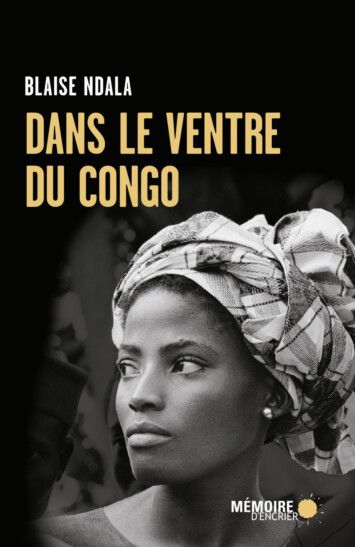
The harms of colonization are also omnipresent in Blaise Ndala's third novel, In the belly of the Congo, published in 2021 by Mémoire d'encrier for Canada, by Éditions du Seuil for Europe and by Vallesse Éditions Abidjan for Africa.
The novel won several awards, including the Cheikn Hamidou Kane International Literature Prize, the Ivory Prize for French-speaking African literature and the Ahmadou-Kourouma Prize.
According to the author, this novel is intended to be a “pacification of memories for those who, from Brussels to Kinshasa, hope without believing that the past will one day pass.”
This novel tells the story of Princess Tshala Nyota Moelo, from a prestigious Bakuba monarchy. Caught in a youth trapped in the rituals linked to pre-colonial royalty, she still manages to free herself from her family and falls in love with a young Belgian settler with whom she will live for a few years before being abandoned.
She will then try to use her relationships to rebuild her life, but will be duped and will find herself a puppet in the reconstruction of a Congolese village – some say a zoo – presented to visitors at the Universal Exhibition in Brussels in 1958. She will disappear then without leaving any traces.
Jump to 2004, a niece of the missing princess arrives in Brussels and meets a man who knew Tshala and, together, they end up understanding the tragic fate of the princess. I won't tell you any more. To read.
A quick note for Blaise Ndala diehards: he has just finished the final manuscript of a fourth novel, which is now in the hands of his literary agent. The book could appear within a year.
Réjean Grenier has worked in the media for 47 years, as a journalist, senior editor at -/CBC, publisher and owner of a newspaper and magazine, and columnist. He presented a literary column on - for five seasons. He has been an avid reader since he was 12 years old. He grew up in a small village in Northern Ontario where there was no bookstore, but he quickly learned where to order books. His favorite type of work is the novel since “we only find the truth in the imagination”.
Type: Opinion
Opinion: Content that advances ideas and draws conclusions based on the author's interpretation of facts or data.

